Flutter Developer Hiring Checklist: Essential Skills & Red Flags for CTOs and Managers

Selecting the ideal candidate using a Flutter developer hire checklist is crucial for CTOs and managers aiming to deliver top-tier mobile applications. Focusing on essential skills for Flutter developer roles streamlines the recruitment process, ensuring candidates meet your technical and collaboration standards. This checklist highlights the must-have skills and major red flags, helping you evaluate candidates effectively and select developers who will drive project success.
Why a Flutter Developer Hiring Checklist Matters for CTOs and Managers
Using a detailed Checklist for Hiring Flutter Developers is essential for CTOs and managers to systematically evaluate candidates’ suitability for your project and team. This ensures you focus on the right skills and qualities while minimizing hiring risks. Key reasons why a Checklist for Hiring Flutter Developers matters:
- Ensures comprehensive assessment of critical technical skills for Flutter developer roles, including Dart proficiency and state management.
- Standardizes the interview process, enabling fair and consistent candidate evaluation.
- Helps quickly identify candidates with proven experience through portfolio reviews and coding tests.
- Facilitates evaluation of soft skills such as communication and teamwork to gauge cultural fit.
- Highlights potential red flags like lack of practical experience or weak problem-solving abilities.
- Reduces the risk of hiring mismatches that can delay projects and increase costs.
- Supports faster, more confident hiring decisions aligned with project and business goals.
- Improves the overall quality of app development and team productivity.
- Enhances retention by selecting candidates who fit the company’s long-term vision.
- Builds a repeatable recruitment framework for future Flutter developer hiring needs.
Essential Technical Skills for Flutter Developers

Evaluating essential technical skills is crucial in a Flutter Developer Hiring Guide to ensure candidates possess core skills for Flutter developer roles:
- Dart Programming Expertise: Proficient in Dart syntax, data structures, and asynchronous programming.
- Flutter Framework Proficiency: Strong understanding of widget tree, navigation, lifecycle, and customization.
- State Management Knowledge: Skilled in Provider, BLoC, Riverpod, or Redux state management techniques.
- UI/UX and Responsive Design: Capable of building adaptive, user-friendly interfaces across devices.
- API Integration and Backend Connectivity: Experienced in RESTful API integration and data handling.
- Testing, Debugging, and Performance Optimization: Ability to write tests and optimize Flutter app performance.
- Version Control and CI/CD Familiarity: Knowledge of Git and CI/CD workflows to support efficient development.
Soft Skills and Team Collaboration
Evaluating soft skills and team collaboration is a key part of the Flutterdeveloper hiring checklist to ensure candidates can contribute effectively beyond coding. Essential soft skills for Flutter developers include:
- Communication: Clear articulation of ideas, technical concepts, and feedback within teams and with stakeholders.
- Teamwork: Ability to collaborate smoothly with designers, developers, and product managers in agile environments.
- Adaptability: Openness to learning new tools, frameworks, and adjusting to changing project requirements.
- Problem-Solving: Proactive approach to identifying challenges and working collaboratively on solutions.
- Time Management: Efficient organization of tasks and meeting deadlines in fast-paced development cycles.
- Responsibility and Ownership: Taking accountability for assigned modules and delivering quality work consistently.
- Positive Attitude: Constructive mindset that supports teamwork, peer learning, and continuous improvement.
Common Red Flags to Watch for During Hiring
Identifying common red flags during the hiring process is essential in a Flutter Developer Recruitment Checklist to prevent selecting candidates who may struggle to deliver quality results or integrate well with your team. Here are detailed explanations of key red flags to watch out for:
- Lack of Real-World Project Experience: Candidates who cannot demonstrate completed Flutter applications or relevant portfolio work may lack practical understanding of building scalable, performant mobile apps. This absence suggests limited exposure to real development challenges such as handling user interactions, managing app state, debugging, or deploying apps to production platforms.
- Poor Practical Coding Skills: Even if a candidate has theoretical knowledge, an inability to write clean, readable, and efficient Flutter and Dart code during live coding tests or assignments reflects a significant gap. Poor coding practices can lead to maintainability issues, increased bugs, and slower development cycles, which negatively impact project outcomes.
- Weak Problem-Solving and Debugging: Candidates who struggle to troubleshoot common Flutter issues or optimize performance demonstrate a lack of critical thinking and technical depth. Effective Flutter developers should systematically identify bottlenecks, resolve UI glitches, memory leaks, and ensure smooth app responsiveness, which is vital for user experience.
- Inadequate State Management Understanding: State management is a cornerstone of Flutter development. Candidates unfamiliar with popular techniques like Provider, BLoC, Riverpod, or Redux may produce unstable or difficult-to-maintain applications. Lack of this knowledge often results in buggy behavior or inefficient app architecture.
- Communication and Workplace Attitude Issues: Strong communication is vital for explaining technical decisions, collaborating with designers, QA, and other developers, and receiving feedback constructively. Candidates who exhibit poor communication skills, a reluctance to collaborate, resistance to feedback, or a negative attitude can disrupt team dynamics and slow project progress.
Best Practices for Interviewing Flutter Developers
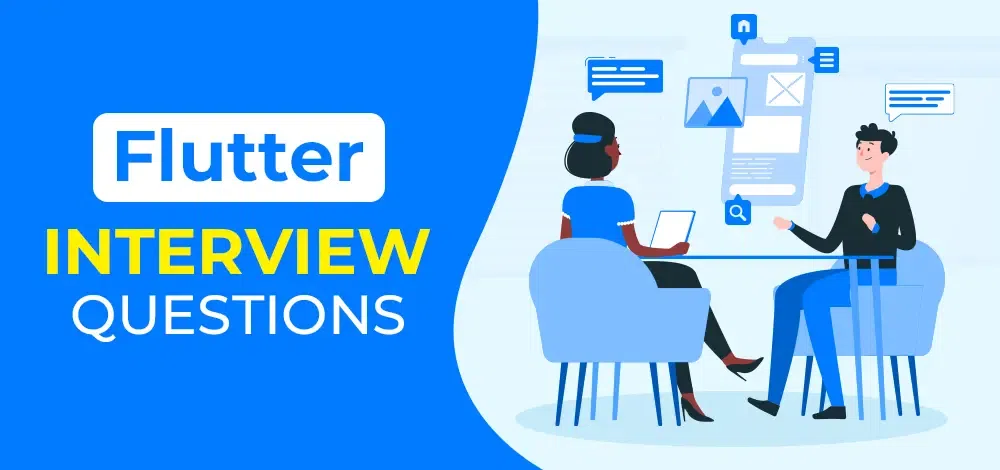
Implementing best practices in interviewing is vital for a strong Flutter developer hiringchecklist and effective assessment of skills for Flutter developer candidates:
- Prepare targeted Flutter interview questions covering technical and practical knowledge.
- Include real-world coding tasks or live coding sessions to assess hands-on skills.
- Evaluate state management, UI/UX skills, API integration, and app architecture.
- Ask scenario-based questions to test problem-solving and debugging abilities.
- Review portfolios for diversity, code quality, and relevant project experience.
- Assess communication skills with both technical and behavioral interview rounds.
- Simulate collaboration situations to observe teamwork and responsiveness.
- Clearly define project expectations and alignment with candidate goals.
- Use objective scoring rubrics for fair and consistent evaluation.
- Involve multiple team members for broader perspective and unbiased decisions.
Tools and Methods for Skill Assessment
Selecting the right tools and methods for skill assessment is essential in a Flutter Developer Recruitment Checklist to evaluate core skills for Flutter developer roles:
- Use coding platforms like Codility, HackerRank, DevSkiller, and TestDome for technical tests.
- Assign take-home coding projects or live coding challenges simulating real app tasks.
- Review candidate portfolios and open-source Flutter contributions.
- Conduct pair programming or collaborative coding sessions.
- Utilize code review exercises to assess code quality and maintainability.
- Implement behavioral interviews to gauge soft skills and teamwork.
- Test knowledge of CI/CD workflows and Git version control through practical exercises.
- Check understanding of state management with hands-on scenarios.
- Use technical quizzes for quick evaluation of Flutter and Dart fundamentals.
- Request references for confirmation of skill level and work ethic.
Freelance vs Full-Time Flutter Developer Hiring Considerations
When deciding between hiring a freelance or full-time Flutter developer, CTOs and managers should consider various factors highlighted in a Flutterdeveloper hiring checklist. Understanding the trade-offs related to cost, flexibility, availability, and team integration ensures that you choose the right employment type aligned with your project needs and company goals. Comparing these aspects helps optimize your Flutter developer hiring process and secure the best talent.
| Aspect | Freelance Flutter Developer | Full-Time Flutter Developer |
| Project Duration | Best for short-term or flexible projects | Ideal for long-term, ongoing projects |
| Cost Structure | Higher hourly rates, no benefits | Fixed salary plus benefits and taxes |
| Flexibility | Highly flexible, hired per project or hourly | Less flexible, dedicated to one organization |
| Reliability & Availability | Variable; dependent on freelancer’s schedule | Generally stable and consistently available |
| Contracts | Service agreements required | Standard employment contracts |
| Performance Expectations | Defined deliverables and deadlines | Monitored through regular performance reviews |
| Skill Assessment | Portfolio review and live tests important | In-depth interviews and ongoing evaluation |
| Communication | Requires strong remote communication skills | Often better integrated within company teams |
| Time Zones | May span multiple time zones, needing coordination | Usually aligned with company working hours |
| Team Integration | May work independently or in limited collaboration | Fully integrated into company culture and workflows |
Post-Hire Onboarding and Continuous Skill Development
Effective post-hire onboarding and continuous skill development are vital steps in the Flutterdeveloper hiring checklist to maintain and enhance the skills for Flutter developer roles:
- Provide structured onboarding with clear goals, project workflows, and tool orientation.
- Assign mentors or team leads for knowledge transfer and support.
- Encourage participation in Flutter and Dart training, certifications, and workshops.
- Offer access to resources like documentation, code repositories, and community forums.
- Schedule regular performance reviews to assess progress and set development objectives.
- Promote active knowledge sharing through peer reviews and team discussions.
- Support involvement in the Flutter community for exposure to new trends.
- Update skill development plans according to evolving project and business needs.
- Celebrate achievements and milestones to maintain engagement.
- Use review feedback to refine future hiring and training strategies.
Tips for Remote Flutter Developer Hire and Management
Tips for remote Flutter developer hires and management are crucial components of a Flutter hiring checklist. Incorporating these strategies helps CTOs and managers ensure the right skills for Flutter developer roles and maintain high productivity in distributed teams:
- Define clear project requirements and remote work expectations upfront.
- Use video calls for interviews to assess communication and collaboration skills.
- Test remote-specific competencies, such as version control (Git) and cloud-based development workflows.
- Request practical coding assessments that can be completed independently.
- Check time zone compatibility for smooth team collaboration.
- Prioritize candidates with experience in remote/mobile app projects.
- Establish structured onboarding with remote access to essential tools and documentation.
- Implement regular virtual stand-ups and meetings for progress tracking.
- Use platforms like Slack, Jira, and Trello for transparent communication and task management.
- Encourage knowledge sharing through team chat, code reviews, and virtual brainstorming sessions.
- Set measurable goals, deadlines, and provide frequent feedback.
- Foster a positive team culture with virtual social interactions and recognition of achievements.
Conclusion
A comprehensive Flutter Developer Hiring Checklist is vital for CTOs and managers to identify candidates with the essential skills for Flutter developer roles. Focusing on both technical expertise and soft skills while recognizing red flags ensures effective hiring decisions. Utilizing best interview practices, skill assessment tools, and understanding hiring considerations for freelance versus full-time developers streamlines recruitment. Post-hire onboarding and continuous skill development further enhance team performance. Implementing these strategies results in hiring skilled Flutter developers who drive project success and align with organizational goals.
FAQ(Frequently Asked Questions)
- What is a Flutterdeveloper hiring checklist?
A Flutter Developer Recruitment Checklist is a structured tool that helps CTOs and managers evaluate candidates’ technical skills, soft skills, and overall fit to ensure effective hiring decisions. - Which essential skills should I look for in a Flutter developer?
Look for expertise in Dart programming, Flutter framework, state management, UI/UX design, API integration, testing, debugging, version control, and CI/CD. - How do I assess Dart programming skills during hiring?
Use coding tests, live coding challenges, and technical interview questions focused on Dart fundamentals, asynchronous programming, and best practices. - What are the best interview questions for Flutter developer candidates?
Questions should cover widget lifecycle, state management, API integration, error handling, UI optimization, and real-world problem-solving scenarios. - How can I test practical Flutter coding abilities effectively?
Assign take-home projects, live coding sessions, or problem-solving tasks that replicate typical Flutter development challenges. - What are common red flags when hiring Flutter developers?
Red flags include lack of real-world experience, poor coding skills, weak problem-solving, inadequate state management knowledge, and poor communication. - How important are soft skills in Flutter developer hiring?
Soft skills like communication, teamwork, adaptability, and responsibility are crucial for effective collaboration and project success. - Should I hire freelance or full-time Flutter developers?
Freelancers suit short-term, flexible projects with variable availability; full-time developers are better for long-term, integrated team roles. - What tools are best for Flutter developer skill assessments?
Tools like Codility, HackerRank, DevSkiller, and CoderPad offer coding tests and live interview environments tailored for Flutter and Dart. - How do I evaluate a Flutter developer’s portfolio?
Review completed apps, code quality, UI/UX design, feature complexity, and their specific contributions to assess practical experience. - What is the role of state management knowledge in Flutter hiring?
State management expertise ensures developers can build scalable, maintainable apps using methods like Provider, BLoC, or Riverpod. - How to conduct remote interviews for Flutter developer candidates?
Use video conferencing for communication assessment, apply online coding tests, and evaluate remote collaboration skills. - How often should I review Flutter developer performance post-hire?
Conduct performance reviews quarterly or semi-annually to track progress, provide feedback, and set growth goals. - What onboarding practices help new Flutter developers succeed?
Structured onboarding with clear goals, mentorship, access to resources, and integration into team workflows fosters early productivity. - How can continuous skill development improve Flutter developer retention?
Ongoing training, certifications, community involvement, and knowledge sharing keep developers engaged and enhance long-term retention.




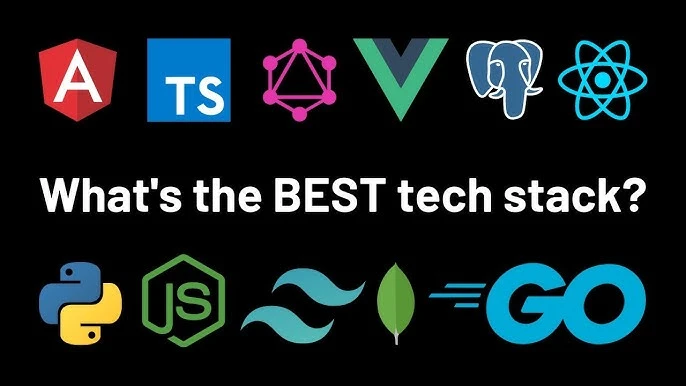
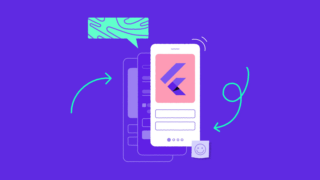
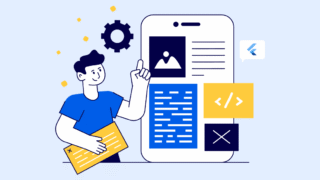
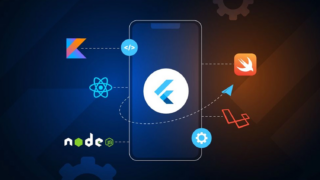

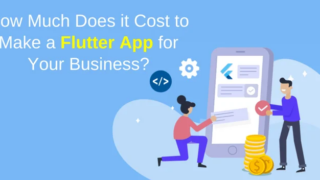
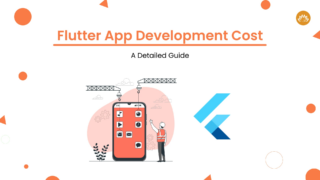
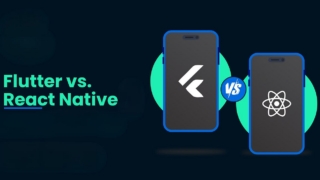
Leave a Reply